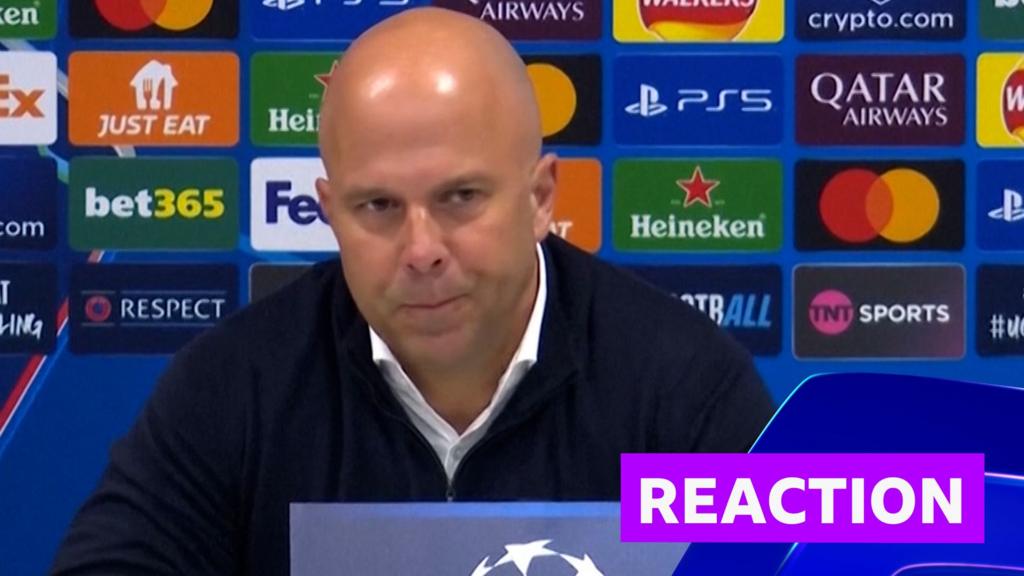ARTICLE AD BOX
 Image source, Getty Images
Image source, Getty Images
Wales' four regions begin their 2024-25 United Rugby Championship season this weekend
Gareth Griffiths
BBC Sport Wales
"Give me some reasons to be optimistic for the Welsh rugby season."
That was a query posed this week at press conferences to players and coaches before the start of another professional men's campaign.
The last two seasons, apart from a month at the World Cup in France last year and a mini-Ospreys revival, have been dismal.
There have been threats of player strikes over contractual issues, continued financial cutbacks, sexism and misogyny accusations at the Welsh Rugby Union (WRU) and on-the-field failures of the Welsh team and professional sides.
So what can we expect this season? Most levels of the Welsh men's game are still struggling as we prepare for a fresh campaign.
Is there any cause for optimism or is apathy a real concern for what is often described as the national sport of Wales?
Matters of national interest
Image source, Huw Evans Picture Agency
Image caption,Wales have won six out of 21 internationals since Warren Gatland returned for a second stint in charge as head coach in December 2022
Since the World Cup quarter-final defeat by Argentina in October 2023, Wales have only managed wins in uncapped fixtures against Barbarians and Queensland Reds.
With the loss of a host of experienced performers and having to rely on youth, Warren Gatland's side have slipped to a new low of 11th in the world rankings.
This included a first Six Nations clean sweep of defeats in 21 years and two Test defeats in Australia to a Wallabies side who have just shipped more than 60 points against Argentina.
Wales have suffered nine consecutive international defeats under Gatland, their second worst losing sequence in history.
Lose to Fiji on 10 November in the opening autumn international in Cardiff and they equal the run of Steve Hansen's side in 2002 and 2003.
And then there is the little matter of games against Australia and world champions South Africa to follow.
Wales only have three home games this year in November with two of those matches on a Sunday.
Interest in the national side is a constant that helps Welsh rugby survive but that will be tested during this campaign.
Questions could also be answered over whether Gatland and his ageing coaching staff are the right group to bring success back on the international stage.
No domestic bliss
Cardiff's Principality Stadium is hosting the Champions Cup and Challenge Cup finals next May.
Not the ideal time for the historic "feat" of no Welsh side qualifying for Europe's top tier tournament for the first time, with all four professional sides competing in the second string competition.
Only Ospreys finished in the United Rugby Championship (URC) top eight last season with Cardiff, Scarlets and Dragons languishing in the bottom five sides.
So surviving, not thriving, will again be the buzz word for the four Welsh teams who have seen their budgets reduced to £4.5m for the coming season, with Cardiff, Ospreys, Scarlets and Dragons all having financial concerns.
Squad sizes remain a constant issue with sides still having to train against each other because of a lack of numbers.
You just have to compare the two squad photographs of Bath and Ospreys this week to demonstrate the difference in resources with the numbers in the English club dwarfing their Welsh counterparts.
Wales prop Wyn Jones, who has left Scarlets for Harlequins, has already remarked about the lack of scrum sessions in training at his old side due to paucity of numbers.
Ospreys were Wales' most successful side last season having reached the URC play-offs and the Challenge Cup quarter-finals. But they are still waiting to sign a deal for a front of shirt sponsor.
They will also be losing head coach Toby Booth at the end of the season with Mark Jones stepping up from his defence coach role.
Lack of resources
Image source, Huw Evans Picture Agency
Image caption,Cardiff head coach Matt Sherratt, Dragons head coach Dai Flanagan, Scarlets head coach Dwayne Peel and Ospreys head coach Toby Booth
There have been some shrewd domestic signings but no real household names.
Compare that to South African side Sharks welcoming back Springboks double World Cup-winning captain Siya Kolisi and Irish giants Leinster attracting All Blacks centre Jordie Barrett.
Welsh sides can compete when they can name a full-strength side but that is rarely going to be the case because of injuries.
A brief look at the opening weekend and the names missing prove that. Scarlets and Dragons are already lacking front-row resources, Ospreys are missing key second-row figures and Cardiff are still without British and Irish Lions Test stars Josh Adams and Taulupe Faletau.
Cardiff kick off the men's professional rugby campaign on Friday night when they host Italian side Zebre in a multi-nation URC competition still to convince many Welsh supporters of its merits, with talk of an Anglo-Welsh competition or British and Irish League rearing its head again.
Whatever league the Welsh sides are involved in, they have to start winning soon to retain interest, despite all the obstacles they face.
The new Super Rygbi Cymru (SRC) league is designed to bridge the gap to professional rugby. That influence will take time to judge.
Strategic approach
Image source, Huw Evans Picture Agency
Image caption,Welsh Rugby Union chief executive Abi Tierney and chair Richard Collier-Keywood launching a new strategy in June 2024
To overcome these issues, Welsh rugby bosses are going to come up with an overall strategy everybody will adhere to and help lift the game out of the doldrums.
That is the theory.
WRU chief executive Abi Tierney started her new role in January and has kept a low public profile this year.
Tierney has undergone a significant cost-cutting exercise at the organisation and is trying to deal with the situation previous regimes have left.
Domestic chief executives have stated publicly they have been impressed by the new WRU executive after previous battles.
The proof will be in Tierney's actions rather than words. The acid test will lie with the new strategy she had initially hoped to deliver the new report by the end of June.
Instead, a five-point plan was unveiled with the aim to make the national teams consistently ranked in the world's top five, club teams challenge in the play-offs of URC and Celtic Challenge, retaining and grow the number of active participants, financial sustainability at all levels and increase positivity of the game among the Welsh public.
The full document has been delayed and is now expected in late October when meat needs to be added to the bone.
Answers on whether Wales can maintain four professional sides and what competition they will be involved in will be under scrutiny.
This is the document that should finally provide Welsh rugby with a clear vision. The minimum it needs is to offer some form of radical change.
Whether that happens remains to be seen but Tierney's legacy will be judged on what is produced.
And Welsh rugby's future could depend on it.

 2 months ago
13
2 months ago
13








 English (US)
English (US)